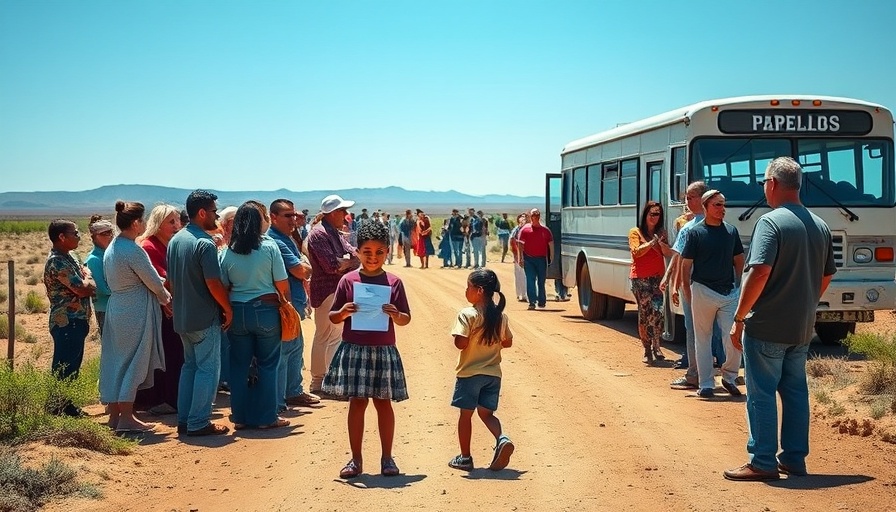
Unraveling the Crisis: Thousands of Unaccounted Alien Children in the U.S.
A recent report by the Department of Homeland Security (DHS) Inspector General has raised serious concerns regarding the safety and oversight of unaccompanied alien children (UAC) in the United States. According to the findings, the federal government has lost track of tens of thousands of these vulnerable minors after they were released into the care of sponsors. The lack of tracking leaves these children open to potential exploitation, raising urgent questions about the effectiveness of current policies aimed at protecting young asylum-seekers.
Understanding the Policy Landscape: A Brief Historical Context
To comprehend the severity of this situation, it is crucial to reflect on the historical framework surrounding immigration policy, particularly concerning minors. The influx of UACs has been a significant issue for years, particularly in the wake of increasing violence in Central American countries. As the situation escalated, the U.S. government established policies designed to provide a safe haven for these children, allowing them to apply for asylum. However, the lack of robust follow-up and monitoring systems has led to significant oversights, as discussed in the recent DHS report.
The Emotional Toll: What It Means for Families and Society
The implications of losing track of these children extend beyond statistics. For families who risked everything to send their children to safety, the uncertainty is harrowing. Many parents are forced to navigate a complex legal system, with little assurance of their child's welfare after they are placed with a sponsor. The emotional burden on families extends to communities, as the fear of child exploitation casts a long shadow over trust and safety.
Current Events: The Fractured Framework of Accountability
The recent revelations come at a time when immigration issues are front and center in national discourse. With increasing scrutiny of immigration policies and practices, the failure to track unaccompanied minors has ignited debate across political aisles. Experts and advocates are calling for a more stringent framework that ensures continuous accountability and monitoring of UACs, echoing sentiments from advocacy groups dedicated to children's rights. These groups argue that policy reforms need to focus on improving oversight and ensuring that children's well-being remains a top priority.
Practical Steps: Recommendations for Reform
In response to this alarming situation, experts recommend several practical measures to enhance the welfare of UACs. First and foremost is the establishment of a more integrated tracking system that utilizes technology to monitor these children throughout their legal journey. Collaboration with non-profit organizations can enhance outreach and support networks for vulnerable children and their families. Furthermore, continuous training for sponsors on child welfare and legal obligations could improve the overall care of these minors in the U.S.
Moving Forward: A Call for Accountability and Reform
With the stakes so high, it is imperative for policymakers to act swiftly to reassess current strategies for handling the welfare of unaccompanied alien children. Comprehensive reforms that include better tracking and oversight mechanisms will not only protect these children but also restore faith in the U.S. immigration system. It is a shared responsibility—one that requires collective efforts from government agencies, communities, and individuals alike—to ensure that these children receive the care and protection they need in their pursuit of a safer future.
 Add Element
Add Element  Add Row
Add Row 



Write A Comment